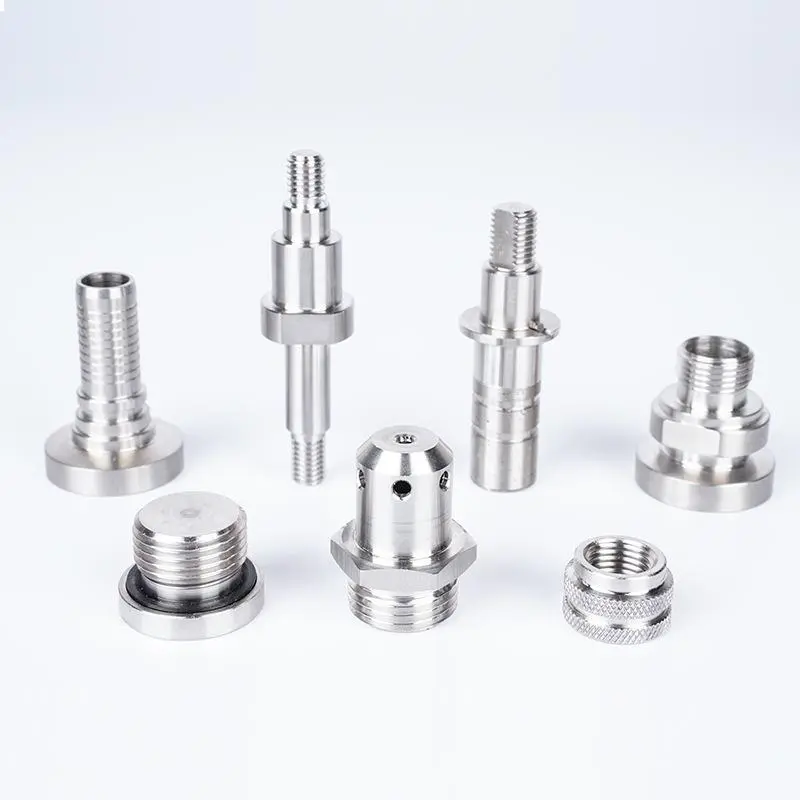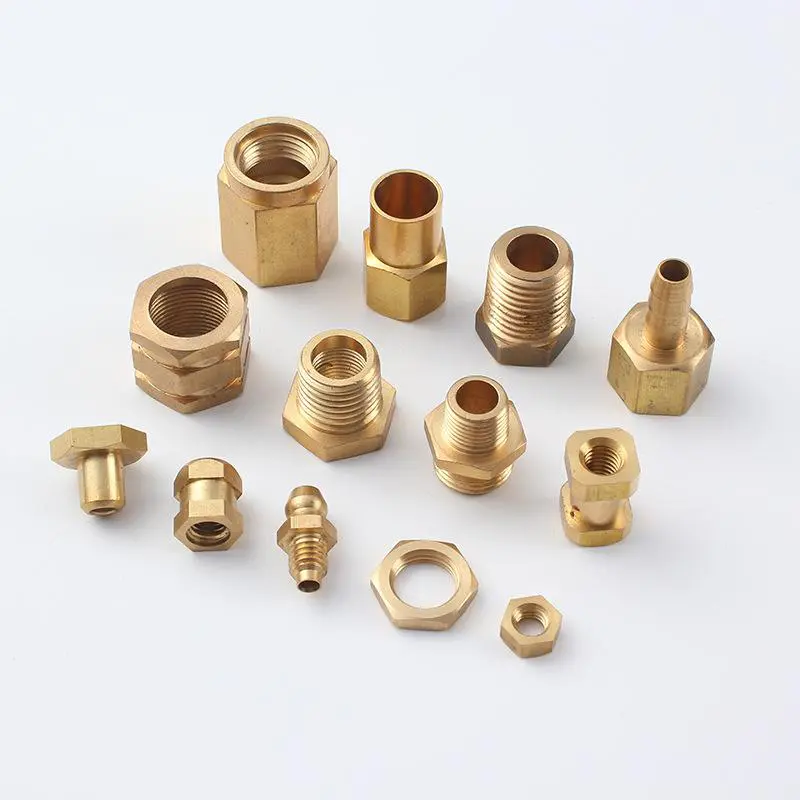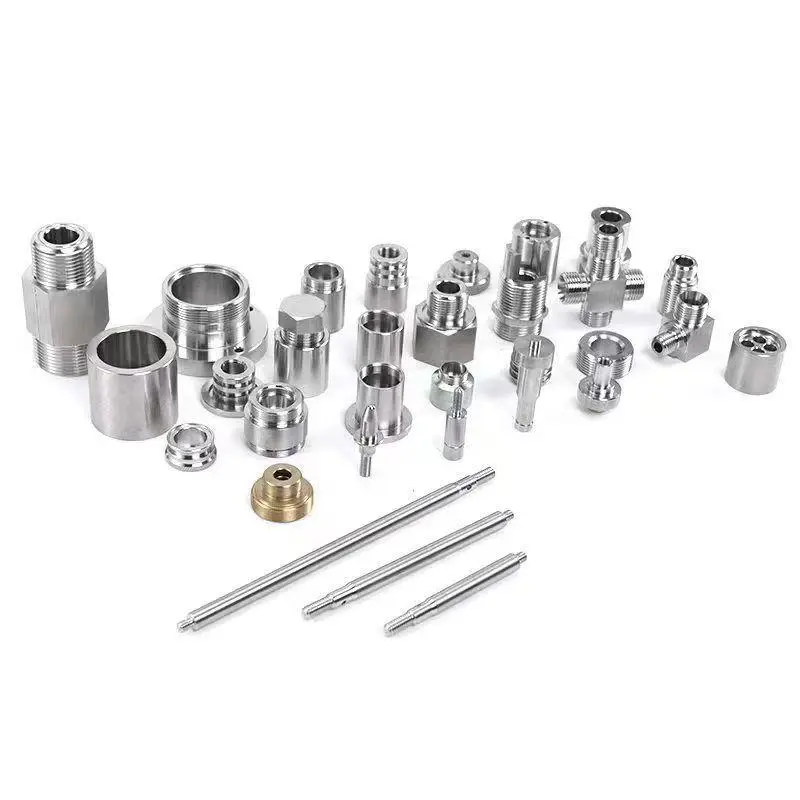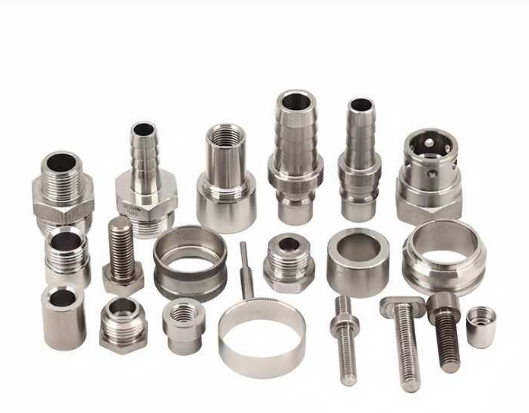Unlocking Precision: The Advantages of CNC Swiss Machined Aluminum Components
Published Time:
2025-09-22
Unlocking Precision: The Advantages of CNC Swiss Machined Aluminum Components
Table of Contents
- Introduction to CNC Swiss Machining
- Understanding CNC Swiss Machining
- Benefits of CNC Swiss Machined Aluminum Components
- Applications of CNC Swiss Machining in Various Industries
- Precision and Accuracy in CNC Swiss Machining
- Cost Efficiency and Material Savings
- Choosing the Right Manufacturer for CNC Swiss Machined Components
- The Future of CNC Swiss Machining Technology
- Frequently Asked Questions
- Conclusion
Introduction to CNC Swiss Machining
CNC Swiss machining represents a pivotal advancement in manufacturing technology, focusing on precision and efficiency. As industries evolve, the demand for high-quality components continues to rise, making CNC Swiss machining increasingly relevant. This process utilizes computerized numerical control (CNC) to produce intricately designed parts with exceptional accuracy.
Aluminum, known for its lightweight yet durable characteristics, is a preferred material in various applications. By harnessing the power of CNC Swiss machining, manufacturers can create aluminum components that meet stringent industry standards while enhancing performance and longevity.
Understanding CNC Swiss Machining
CNC Swiss machining, often referred to simply as Swiss machining, is a specialized manufacturing technique that involves the use of sliding headstock lathes. These machines are designed to produce complex parts from bar stock, which is fed through the machine's spindle.
The primary advantage of Swiss machining lies in its ability to perform multiple operations simultaneously. As a result, manufacturers can produce highly intricate components with tight tolerances in a single setup, significantly reducing the time and effort required for machining processes.
How CNC Swiss Machining Works
During the CNC Swiss machining process, a rotating bar of aluminum is precisely fed into the machine, where various cutting tools shape the material into the desired component. The CNC system controls the movements of the tools and the material, ensuring a high level of accuracy and consistency.
Additionally, the sliding headstock design allows for longer workpieces, enabling the creation of parts that would be difficult or impossible to manufacture using traditional machining methods. This technique is particularly advantageous when producing small to medium-sized components, which are prevalent in industries such as aerospace, automotive, medical, and electronics.
Benefits of CNC Swiss Machined Aluminum Components
The advantages of CNC Swiss machined aluminum components extend far beyond mere machining efficiency. Here are some key benefits that make this technology a game-changer in the manufacturing landscape:
1. Exceptional Precision and Tolerances
CNC Swiss machining offers unparalleled precision, capable of achieving tolerances as tight as ±0.001 inches. This level of accuracy is essential for components used in critical applications where even minor deviations can lead to significant performance issues.
2. High Production Rates
The ability to perform multiple operations in a single setup significantly increases production rates. Manufacturers can produce large volumes of components in a shorter time frame, enhancing overall productivity and helping to meet rising demand.
3. Material Efficiency
CNC Swiss machining minimizes waste by utilizing bar stock more effectively. The process allows for the efficient removal of material, resulting in less scrap and a better yield from each bar. This not only saves costs but also contributes to more sustainable manufacturing practices.
4. Versatility in Design
The flexibility of CNC Swiss machining enables the production of complex geometries and intricate designs that might be challenging to achieve with conventional machining methods. This versatility opens the door to innovative product development across various industries.
5. Enhanced Surface Finish
CNC Swiss machined aluminum components exhibit superior surface finishes, reducing the need for additional polishing or finishing operations. This characteristic is crucial for applications where aesthetics and functionality are both important.
Applications of CNC Swiss Machining in Various Industries
CNC Swiss machining is utilized in a myriad of industries, thanks to its adaptability and precision. Here are some notable applications:
Aerospace Industry
In aerospace manufacturing, the stringent requirements for weight and performance make CNC Swiss machined aluminum components highly sought after. Their lightweight nature combined with exceptional strength makes them ideal for aircraft parts, fittings, and structural components.
Medical Device Manufacturing
The medical industry demands components that meet rigorous health and safety standards. CNC Swiss machining allows for the production of precision parts such as surgical instruments and implants, which require exacting tolerances and reliability.
Automotive Industry
Automotive manufacturers leverage CNC Swiss machining to create components for engines, transmissions, and electronics. The ability to produce high volumes of precision parts quickly is essential in this competitive field.
Electronics Sector
In the electronics industry, the demand for miniaturization and precision is ever-increasing. CNC Swiss machined aluminum components are used in various electronic devices, ensuring high performance and durability.
Precision and Accuracy in CNC Swiss Machining
Precision and accuracy are hallmarks of CNC Swiss machining. The combination of advanced technology and skilled operators ensures that components are produced to exact specifications.
The CNC systems employed in this process utilize sophisticated software that allows for intricate programming of cutting paths. This level of control means manufacturers can achieve consistent results batch after batch, maintaining the quality needed for critical applications.
Quality Control Measures
To guarantee the quality of CNC Swiss machined components, manufacturers implement rigorous quality control measures throughout the production process. This includes:
- In-process inspections to monitor tolerances
- Post-production testing to validate component performance
- Use of calibrated measuring tools to ensure accuracy
These quality control practices foster confidence in the final product, making CNC Swiss machined aluminum components a preferred choice across various industries.
Cost Efficiency and Material Savings
Investing in CNC Swiss machining technology can yield significant cost savings for manufacturers. The efficiency of the process not only reduces labor costs but also minimizes material waste.
By optimizing the use of aluminum stock, manufacturers can achieve higher yields while maintaining strict quality standards. Furthermore, the rapid production rates associated with CNC Swiss machining ensure that manufacturers can meet tight deadlines without compromising quality.
Long-Term Financial Benefits
The initial investment in CNC machining equipment may be substantial, but the long-term benefits often outweigh the costs. As manufacturers streamline their operations and reduce waste, they can expect improved profit margins and enhanced competitiveness in the marketplace.
Choosing the Right Manufacturer for CNC Swiss Machined Components
Selecting the right manufacturer for your CNC Swiss machined aluminum components is critical to ensuring quality and reliability. Here are some factors to consider:
1. Experience and Expertise
Look for manufacturers with a proven track record in CNC Swiss machining. Their experience will play a vital role in achieving high-quality results.
2. Technology and Equipment
Ensure that the manufacturer uses state-of-the-art CNC Swiss machining technology. Advanced machines will provide greater precision and efficiency in the production process.
3. Quality Assurance Practices
Inquire about the manufacturer’s quality control measures. A robust quality assurance program is essential for maintaining consistency and meeting industry standards.
4. Customer Support
Choose a manufacturer that offers excellent customer support. Open communication and responsiveness will enhance your overall experience and ensure your needs are met.
The Future of CNC Swiss Machining Technology
As technology continues to advance, the future of CNC Swiss machining looks promising. Emerging trends include the integration of artificial intelligence and automation, enabling even greater efficiency and precision.
Additionally, ongoing research into advanced materials will expand the possibilities for CNC Swiss machined components, allowing manufacturers to push the boundaries of what is achievable.
Frequently Asked Questions
1. What materials can be used in CNC Swiss machining?
CNC Swiss machining is versatile and can work with various materials, including metals like aluminum, brass, stainless steel, and plastics.
2. How does CNC Swiss machining differ from traditional machining?
CNC Swiss machining utilizes a sliding headstock and feeds a rotating bar of material, allowing for multiple operations to be performed simultaneously, resulting in higher precision and efficiency compared to traditional methods.
3. What industries benefit from CNC Swiss machined aluminum components?
Industries such as aerospace, medical, automotive, and electronics benefit significantly from CNC Swiss machined aluminum components due to their lightweight and durable properties.
4. How can I ensure the quality of my CNC Swiss machined components?
Choosing a reputable manufacturer with strong quality assurance practices and conducting regular inspections throughout the production process will help ensure the quality of your components.
5. What are the cost implications of CNC Swiss machining?
While the initial investment in CNC technology may be high, the long-term savings from reduced labor costs and minimized material waste often result in improved profitability.
Conclusion
CNC Swiss machined aluminum components represent a significant advancement in manufacturing, offering unmatched precision, efficiency, and versatility. The benefits of this technology are evident across various industries, including aerospace, automotive, medical, and electronics.
By understanding the advantages of CNC Swiss machining, manufacturers can make informed decisions when selecting components for their operations. As technology continues to evolve, the future of CNC Swiss machining promises even greater advancements in quality and efficiency, paving the way for revolutionary developments in manufacturing processes. Embrace the precision of CNC Swiss machining and unlock new potential in your production capabilities.
Previous Page
Previous Page
Beijing Pafinal Precision Machinery Co., Ltd.
Email:sales@pafinal.com

Address: No. 239 Huanhe South Road, Tianjin Pilot Free Trade Zone (Airport Economic Zone), Tianjin
中企跨境-全域组件
制作前进入CSS配置样式
sales@pafinal.com:
Whatsapp:
在线客服添加返回顶部
图片alt标题设置: PAFINAL
表单验证提示文本: Content cannot be empty!
循环体没有内容时: Sorry,no matching items were found.
CSS / JS 文件放置地




 2025-09-22
2025-09-22


